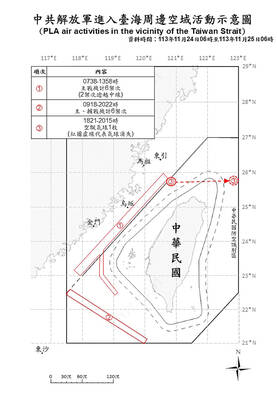A meeting between government officials, including Vice Premier Simon Chang (張善政), and non-governmental open data community groups campaigning for greater government transparency was held yesterday in response to Premier Mao Chi-kuo’s (毛治國) promise last month of better communications with online communities.
The meeting was streamed live online with live comments and included representatives from at least 13 non-governmental organizations, such as the Open Data League.
Chang, who was also a former minister of Science and Technology, said the project to promote open data has been under way for at least three years since it was passed in a Cabinet meeting, adding that the premier’s instructions that he take charge of the project shows Mao has prioritized the issue.
Open Data League president Peng Chi-ming (彭啟明) said that while the premier has been championing the principles supporting open and free government data, clear government regulations are still lacking, and without them, communication with government agencies on data-release issues could be problematic.
The league called for a provision to be issued on the authorization of open data within three months and the eventual passing of an open-data law.
Peng also commented on the group of National Development Council workers who are running the project.
“It seems that [fewer than 10 people] are in charge of the task, while the number could be 40 or 50 in the EU or South Korea,” he said.
The perception is that the government seems to take open data as simply “releasing data, while other countries are already developing an API [application programming interface] to enable members of the public to find the information they want,” Peng said.
Other suggestions from the open data community include encouraging officials and civil servants to upgrade their knowledge of open data, accelerating the opening of data sets and engaging in global exchange and cooperation.
The vice premier said that creating the accompanying legislation would take time, but an action program called “Internet Wisdom and a New Taiwan,” in which open data and big data are crucial categories, is to be released in April.
Chang said the reason the legislation might be a long way off is due to public misgivings over possible infringements of human rights and leaks of personal information.
Chang said he has required ministers, deputy ministers, department and bureau chiefs, as well as Ministry of Culture and Information Bureau officials to attend lectures on the matter, agreeing that “a brain change” of people in charge is necessary.

Theaters and institutions in Taiwan have received 28 threatening e-mails, including bomb threats, since a documentary critical of China began being screened across the nation last month, the National Security Bureau said yesterday. The actions are part of China’s attempts to undermine Taiwan’s sovereignty, it said. State Organs (國有器官) documents allegations that Chinese government officials engage in organ harvesting and other illegal activities. From last month to Friday last week, 28 incidents have been reported of theaters or institutions receiving threats, including bomb and shooting threats, if they did not stop showing the documentary, the bureau said. Although the threats were not carried out,

HEALTHCARE: Following a 2022 Constitutional Court ruling, Taiwanese traveling overseas for six months would no longer be able to suspend their insurance Measures allowing people to suspend National Health Insurance (NHI) services if they plan to leave the country for six months would be abolished starting Dec. 23, NHIA Director-General Shih Chung-liang (石崇良) said yesterday. The decision followed the Constitutional Court’s ruling in 2022 that the regulation was unconstitutional and that it would invalidate the regulation automatically unless the NHIA amended it to conform with the Constitution. The agency would amend the regulations to remove the articles and sections that allow the suspension of NHI services, and also introduce provisional clauses for those who suspended their NHI services before Dec. 23, Shih said. According to

‘GRAY ZONE’ TACTICS: China continues to build up its military capacity while regularly deploying jets and warships around Taiwan, with the latest balloon spotted on Sunday The US is drawing up contingency plans for military deployments in Japan and the Philippines in case of a Taiwan emergency, Japan’s Kyodo news agency reported. They would be incorporated in a first joint operation plan to be formulated in December, Kyodo reported late on Sunday, citing sources familiar with Japan-US relations. A US Marine Corps regiment that possesses High Mobility Artillery Rocket Systems — a light multiple rocket launcher — would be deployed along the Nansei Island chain stretching from Kyushu to Yonaguni near Taiwan, Kyodo said. According to US military guidelines for dispatching marines in small formations to several locations,

As Taiwan celebrated its baseball team’s victory in the World Baseball Softball Confederation’s Premier12 on Sunday, how politicians referred to the team in their congratulatory messages reflected the nation’s political divide. Taiwan, competing under the name Chinese Taipei (中華台北隊), made history with its first-ever Premier12 championship after beating Japan 4-0 at the Tokyo Dome. Right after the game, President William Lai (賴清德) congratulated the team via a post on his Facebook page. Besides the players, Lai also lauded the team’s coaching and medical staff, and the fans cheering for them in Tokyo or watching the live broadcast, saying that “every